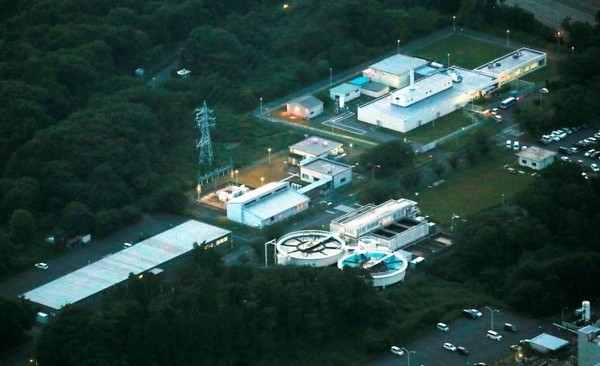Regulator criticized atomic energy agency for not being more careful

Five workers at a nuclear research facility in east Japan were exposed to radioactive material on Tuesday after a bag that contained it burst, the plant's state-run operator said.
Japan Atomic Energy Agency (JAEA) said in a statement the incident occurred during a check on radioactive storage inside a "controlled" room at the facility in Oarai, with no radioactive material leaking outside.
Shunichi Tanaka, the chairman of the regulator Nuclear Regulation Authority, in a weekly news conference on Wednesday criticized JAEA for not being more careful and said the level of exposure within the room where the accident happened was "high".
Up to 22,000 becquerels of radioactive materials were detected in the lungs of one of the workers, JAEA said. That could potentially expose him to levels of radiation many times higher than most people over the coming decades.
A JAEA spokesman who declined to be named said the material in that worker's lungs was plutonium, marking the highest such measurement for plutonium from any atomic accident in the country.
Another company spokesman said measurements of radioactive materials between 2,200 becquerels and 14,000 becquerels were detected in the other four workers. He said some of this may have come from plutonium.
"The workers had no (immediate) irregularities in their health, but we cannot deny the possibility of any health impact in the future," he said. The workers were wearing coveralls, caps, gloves and half-masks.
Japan's nuclear industry has been in tatters in the wake of the Fukushima disaster in 2011, with parts of the public deeply skeptical about the safety of atomic energy.
Yoshihide Suga, Japan's chief cabinet secretary, said in a news conference that he had been told the exposure would not pose an immediate risk to the workers' health.





